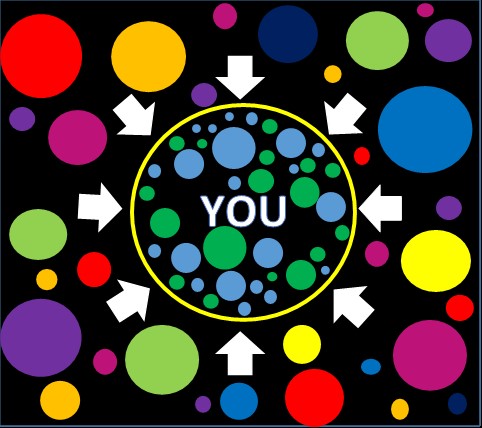|
Disinformation Attack
Disinformation attacks are the intentional dissemination of false information, with an end goal of misleading, confusing, or manipulating an audience. Disinformation attacks may be executed by state or non-state actors to influence domestic or foreign populations. These attacks are commonly employed to reshape attitudes and beliefs, drive a particular agenda, or elicit certain actions out of a target audience. Tactics include the presentation of incorrect or misleading information, the creation of uncertainty, and the undermining of both correct information and the credibility of information sources. Disinformation attacks can be employed through traditional media outlets, such as state-sponsored TV channels and radios. However, disinformation attacks have become increasingly widespread and potent with the advent of social media. Digital tools such as bots, algorithms, and AI technology are leveraged to spread and amplify disinformation and micro-target populations on online pl ... [...More Info...] [...Related Items...] OR: [Wikipedia] [Google] [Baidu] |
Dissemination
To disseminate (from lat. ''disseminare'' "scattering seeds"), in the field of communication, is to broadcast a message to the public without direct feedback from the audience. Meaning Dissemination takes on the theory of the traditional view of communication, which involves a sender and receiver. The traditional communication view point is broken down into a sender sending information, and receiver collecting the information processing it and sending information back, like a telephone line. With dissemination, only half of this communication model theory is applied. The information is sent out and received, but no reply is given. The message carrier sends out information, not to one individual, but many in a broadcasting system. An example of this transmission of information is in fields of advertising, public announcements and speeches. Another way to look at dissemination is that of which it derives from the Latin roots, the scattering of seeds. These seeds are metapho ... [...More Info...] [...Related Items...] OR: [Wikipedia] [Google] [Baidu] |
National Security
National security, or national defence, is the security and Defence (military), defence of a sovereign state, including its Citizenship, citizens, economy, and institutions, which is regarded as a duty of government. Originally conceived as protection against Offensive (military), military attack, national security is widely understood to include also non-military dimensions, including the security from terrorism, minimization of crime, economic security, energy security, environmental security, food security, and Computer security, cyber-security. Similarly, national security risks include, in addition to the actions of other nation states, action by violent non-state actors, by narcotic cartels, and by multinational corporations, and also the effects of natural disasters. Governments rely on a range of measures, including Political power, political, Economic power, economic, and military power, as well as diplomacy, to safeguard the security of a nation state. They may also ... [...More Info...] [...Related Items...] OR: [Wikipedia] [Google] [Baidu] |
Electoral Fraud
Electoral fraud, sometimes referred to as election manipulation, voter fraud or vote rigging, involves illegal interference with the process of an election, either by increasing the vote share of a favored candidate, depressing the vote share of rival candidates, or both. It differs from but often goes hand-in-hand with voter suppression. What exactly constitutes electoral fraud varies from country to country. Electoral legislation outlaws many kinds of election fraud, * also at but other practices violate general laws, such as those banning assault, harassment or libel. Although technically the term "electoral fraud" covers only those acts which are illegal, the term is sometimes used to describe acts which are legal, but considered morally unacceptable, outside the spirit of an election or in violation of the principles of democracy. Show elections, featuring only one candidate, are sometimes classified as electoral fraud, although they may comply with the law and are presen ... [...More Info...] [...Related Items...] OR: [Wikipedia] [Google] [Baidu] |
Psychological Warfare
Psychological warfare (PSYWAR), or the basic aspects of modern psychological operations (PsyOp), have been known by many other names or terms, including Military Information Support Operations ( MISO), Psy Ops, political warfare, "Hearts and Minds", and propaganda. The term is used "to denote any action which is practiced mainly by psychological methods with the aim of evoking a planned psychological reaction in other people". Various techniques are used, and are aimed at influencing a target audience's value system, belief system, emotions, motives, reasoning, or behavior. It is used to induce confessions or reinforce attitudes and behaviors favorable to the originator's objectives, and are sometimes combined with black operations or false flag tactics. It is also used to destroy the morale of enemies through tactics that aim to depress troops' psychological states. Target audiences can be governments, organizations, groups, and individuals, and is not just limited ... [...More Info...] [...Related Items...] OR: [Wikipedia] [Google] [Baidu] |
Echo Chamber (media)
In discussions of news media, an echo chamber refers to situations in which beliefs are amplified or reinforced by communication and repetition inside a closed system and insulated from rebuttal. By participating in an echo chamber, people are able to seek out information that reinforces their existing views without encountering opposing views, potentially resulting in an unintended exercise in confirmation bias. Echo chambers may increase social and political polarization and extremism.Barberá, Pablo, et al. (21 August 2015)"Tweeting from left to right: Is online political communication more than an echo chamber?" '' Psychological Science''. 26.10: 1531-1542. On social media, it is thought that echo chambers limit exposure to diverse perspectives, and favour and reinforce presupposed narratives and ideologies. The term is a metaphor based on an acoustic echo chamber, in which sounds reverberate in a hollow enclosure. Another emerging term for this echoing and homogenizing ... [...More Info...] [...Related Items...] OR: [Wikipedia] [Google] [Baidu] |
Confirmation Bias
Confirmation bias is the tendency to search for, interpret, favor, and recall information in a way that confirms or supports one's prior beliefs or values. People display this bias when they select information that supports their views, ignoring contrary information, or when they interpret ambiguous evidence as supporting their existing attitudes. The effect is strongest for desired outcomes, for emotionally charged issues, and for deeply entrenched beliefs. Confirmation bias cannot be eliminated, but it can be managed, for example, by education and training in critical thinking skills. Biased search for information, biased interpretation of this information, and biased memory recall, have been invoked to explain four specific effects: # '' attitude polarization'' (when a disagreement becomes more extreme even though the different parties are exposed to the same evidence) # '' belief perseverance'' (when beliefs persist after the evidence for them is shown to be false) # the '' ... [...More Info...] [...Related Items...] OR: [Wikipedia] [Google] [Baidu] |
Psychology
Psychology is the scientific study of mind and behavior. Psychology includes the study of conscious and unconscious phenomena, including feelings and thoughts. It is an academic discipline of immense scope, crossing the boundaries between the natural and social sciences. Psychologists seek an understanding of the emergent properties of brains, linking the discipline to neuroscience. As social scientists, psychologists aim to understand the behavior of individuals and groups.Fernald LD (2008)''Psychology: Six perspectives'' (pp.12–15). Thousand Oaks, CA: Sage Publications.Hockenbury & Hockenbury. Psychology. Worth Publishers, 2010. Ψ (''psi''), the first letter of the Greek word ''psyche'' from which the term psychology is derived (see below), is commonly associated with the science. A professional practitioner or researcher involved in the discipline is called a psychologist. Some psychologists can also be classified as behavioral or cognitive scientists. Some ps ... [...More Info...] [...Related Items...] OR: [Wikipedia] [Google] [Baidu] |
Deepfake
Deepfakes (a portmanteau of " deep learning" and "fake") are synthetic media in which a person in an existing image or video is replaced with someone else's likeness. While the act of creating fake content is not new, deepfakes leverage powerful techniques from machine learning and artificial intelligence to manipulate or generate visual and audio content that can more easily deceive. The main machine learning methods used to create deepfakes are based on deep learning and involve training generative neural network architectures, such as autoencoders, or generative adversarial networks (GANs). Deepfakes have garnered widespread attention for their potential use in creating child sexual abuse material, celebrity pornographic videos, revenge porn, fake news, hoaxes, bullying, and financial fraud. This has elicited responses from both industry and government to detect and limit their use. From traditional entertainment to gaming, deepfake technology has evolved to be increa ... [...More Info...] [...Related Items...] OR: [Wikipedia] [Google] [Baidu] |
Clickbait
Clickbait is a text or a thumbnail link that is designed to attract attention and to entice users to follow that link and read, view, or listen to the linked piece of online content, being typically deceptive, sensationalized, or otherwise misleading. A "teaser" aims to exploit the "curiosity gap", providing just enough information to make readers of news websites curious, but not enough to satisfy their curiosity without clicking through to the linked content. Clickbait headlines often add an element of dishonesty, using enticements that do not accurately reflect the content being delivered. The "-bait" part of the term makes an analogy with fishing, where a hook is disguised by an enticement (bait), presenting the impression to the fish that it is a desirable thing to swallow. Before the Internet, a marketing practice known as bait-and-switch used similar dishonest methods to hook customers. In extreme degree, like bait-and-switch, clickbait is a form of fraud. ('' Clic ... [...More Info...] [...Related Items...] OR: [Wikipedia] [Google] [Baidu] |
Algorithm
In mathematics and computer science, an algorithm () is a finite sequence of rigorous instructions, typically used to solve a class of specific problems or to perform a computation. Algorithms are used as specifications for performing calculations and data processing. More advanced algorithms can perform automated deductions (referred to as automated reasoning) and use mathematical and logical tests to divert the code execution through various routes (referred to as automated decision-making). Using human characteristics as descriptors of machines in metaphorical ways was already practiced by Alan Turing with terms such as "memory", "search" and "stimulus". In contrast, a heuristic is an approach to problem solving that may not be fully specified or may not guarantee correct or optimal results, especially in problem domains where there is no well-defined correct or optimal result. As an effective method, an algorithm can be expressed within a finite amount of spac ... [...More Info...] [...Related Items...] OR: [Wikipedia] [Google] [Baidu] |
Western World
The Western world, also known as the West, primarily refers to the various nations and states in the regions of Europe, North America, and Oceania.Western Civilization Our Tradition; James Kurth; accessed 30 August 2011 The Western world is also known as the Occident (from the word ''occidēns'' "setting down, sunset, west") in contrast to the Eastern world known as the ... [...More Info...] [...Related Items...] OR: [Wikipedia] [Google] [Baidu] |
RT (TV Network)
RT (formerly Russia Today or Rossiya Segodnya (russian: Россия Сегодня) is a Russian state-controlled international news television network funded by the Russian government. It operates pay television and free-to-air channels directed to audiences outside of Russia, as well as providing Internet content in Russian, English, Spanish, French, German and Arabic. RT is a brand of TV-Novosti, an autonomous non-profit organization founded by the Russian state-owned news agency RIA Novosti in April 2005. During the economic crisis in December 2008, the Russian government, headed by Prime Minister Vladimir Putin, included ANO "TV-Novosti" on its list of core organizations of strategic importance to Russia. RT operates as a multilingual service with channels in five languages: the original English-language channel was launched in 2005, the Arabic-language channel in 2007, Spanish in 2009, German in 2014 and French in 2017. RT America (2010–2022), RT UK (2014� ... [...More Info...] [...Related Items...] OR: [Wikipedia] [Google] [Baidu] |








